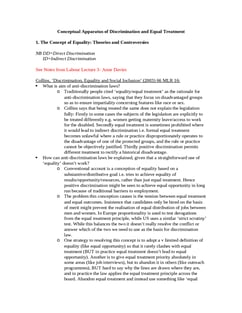Simmons v Hoover [1977] ICR 61
Judgement for the case Simmons v Hoover
Table Of Contents
Plaintiff went on a strike and Defendant (employer) took that to be a repudiatory breach of contract.
-
The EAT accepted that to go on strike was to deliberately breach one’s contract, so that the employer would be able to sack Plaintiff at common law (by accepting the breach of contract).
NB this doesn’t mean that Plaintiff couldn’t sue Defendant for unfair dismissal under statute.
EAT rejected the possibility that the contract had merely been suspended during the strike.
Philips J
When a strike takes place the employer (although he rarely does so) is entitled to dismiss the employee. We are all agreed on this.
A number of problems may then ensue concerning such matters as the right to redundancy payments, and compensation for unfair dismissal. To some extent these matters have already been regulated, by [statutes].
The refusal to turn up for work was a fundamental breach of the contract and had a repudiatory nature.
For Further Study on Simmons v Hoover
Need instant answers? Our AI exam tutor is here to help.
Ask questions 🙋 Get answers 📔 It's simple 👁️👄👁️
Our AI is educated by the highest scoring students across all subjects and schools. Join hundreds of your peers today.
Get StartedSimilar Cases
Related Product Samples
These product samples contain the same concepts we cover in this case.
| Labour Law | Job Security Notes (15 pages) |
| Labour Law | Unfair Dismissal Including Empirical Data Notes (44 pages) |
| Labour Law | Wrongful Dismissal Notes (39 pages) |

 Since 2010, Oxbridge Notes has been a trusted education marketplace, supplying high-quality materials from top achievers at universities like Oxford, Cambridge, LSE, Harvard, and Yale.
Since 2010, Oxbridge Notes has been a trusted education marketplace, supplying high-quality materials from top achievers at universities like Oxford, Cambridge, LSE, Harvard, and Yale.